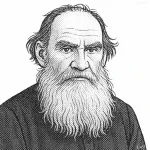“I have the true feeling of myself only when I am unbearably unhappy.”

- July 3, 1883 – June 3, 1924
- Born in the Austro-Hungarian Empire
- Writer, lawyer
table of contents
Quote
“I have the true feeling of myself only when I am unbearably unhappy.”
Explanation
In this poignant statement, Franz Kafka touches on the idea that suffering and unhappiness can serve as a means of self-discovery. Kafka suggests that only in moments of intense discomfort or anguish does he experience a true sense of his own existence. This could be interpreted as a reflection of the human condition, where pain and struggle often become the clearest means of confronting one’s own identity and vulnerability. The feeling of unbearable unhappiness strips away the layers of social masks, distractions, and illusions that we use to navigate everyday life, revealing a raw, unfiltered sense of self that can often be obscured in moments of comfort or contentment. Kafka’s statement suggests that introspection and self-awareness emerge not in times of happiness, but in times of desperation or internal crisis.
Kafka’s writing often explores the themes of alienation, anxiety, and the search for meaning in a world that seems indifferent or hostile. His characters are frequently in conflict with themselves and the world around them, much like Kafka himself, who grappled with depression, illness, and feelings of separation throughout his life. The paradox here is that while unhappiness may seem to be an undesirable state, it becomes for Kafka a means of revelation, a way to uncover truths about oneself that might otherwise remain hidden. This resonates with the existential idea that the suffering we experience is not always a sign of something going wrong, but rather an opportunity to confront the depths of our being and come to terms with our authentic selves.
In modern life, this quote challenges our tendency to view unhappiness and suffering as purely negative experiences that should be avoided or escaped at all costs. Kafka suggests that, in fact, struggles and painful moments can be crucial for our personal growth and understanding. This is especially relevant in an age where happiness is often marketed as a goal or achievement, and where many are encouraged to pursue pleasure or success without acknowledging the transformative power of adversity. Kafka’s statement reminds us that sometimes it is in the darkest moments that we are able to connect most deeply with who we truly are, shedding the superficial layers that often obscure our understanding of ourselves. In this sense, unhappiness becomes not just an inevitable part of the human experience, but a potential pathway to self-realization.
Would you like to share your impressions or related stories about this quote in the comments section?

